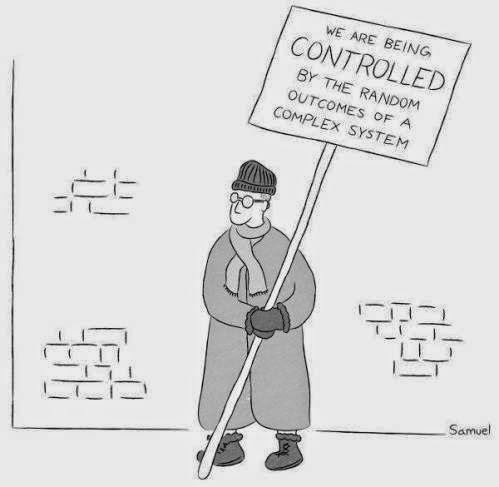Immanuel Kant's modern philosophy is a synthesis of Plato's theory of forms and Aristotle's scientific approach, or, alternatively, a further development and synthesis of French Rationalism and British Empiricism. Kant wrote in his fundamental work, The Critique of Pure Reason, that both rationalists and empiricists transgress their limits. Philosophy requires a subject of recognition, but what can we recognize? Rationalists confidently claim to know the existence of God, free will, and the immortality of the human soul. However, they are far from understanding the "thing-in-itself" beyond all possible experiences. Given the centrality of experience to human knowledge, empiricists often overlook that only reason can transform experience into coherent thought.
Following Kant's synthesis, two German epigenetic philosophers, Friedrich Hegel and Arthur Schopenhauer, bitterly fought over Kant's legacy. The key issue was Hegel's progressive world spirit (Weltgeist) versus Schopenhauer's blind world will (Weltwille).
In the 19th century, technical progress was so clearly visible that Hegel's philosophy was attractive. Hegel, the thinker of progress, sees a teleologically evolving world in which a changeable Weltgeist develops in stages until it becomes the world spirit itself.
 |
| The New Yorker's Weltgeist of the 21st Century (©The New Yorker) |
 |
| Schopenhauer and his poodle by Wilhelm Busch (©Wikipedia). The philosopher's pessimistic view: Seitdem ich die Menschen kenne, liebe ich die Tiere (Since I have gotten to know people, I love animals.) |
Schopenhauer personally suffered from Hegel, whose lectures followed the Zeitgeist (spirit of the times), drawing crowds of students, whereas only a few were interested in Schopenhauer's ideas. The fact that he had masochistically scheduled his courses simultaneously with Hegel's sheds light on Schopenhauer's pessimistic approach to philosophy. He claims that the world will not become better. He sees a world governed by the struggle for survival, by the "will to live."
Schopenhauer personally suffers from this blind Weltwille, in which reason is merely an adjunct of will. From there, it is only a short step to nihilism. Do we all end up in nirvana?
Karl Marx took up Hegel's ideas not so much by writing about God or the Weltgeist (any religion is just opium for the people) but by emphasizing a materialist interpretation of Hegel's historical development. This is, in particular, because of the alienation of humankind, which results in class struggles. In Wikipedia, we read: Marxist methodology uses economic and sociopolitical inquiry and applies that to the critique and analysis of the development of capitalism and the role of class struggle in systemic economic change.
For Friedrich Nietzsche, taking up Schopenhauer's ideas, the world is not guided by reason but by will. He interprets the blind will as a personal will for power or, as time goes by, to sing it with Frank Sinatra: It's still the same old story, the fight for love and glory. According to Nietzsche, humankind must eventually overcome itself to create the Übermensch.
Where do we go from here? Red Baron does not see his world progressing per Hegel's Weltgeist. The defeat of Communism based on Marxism entailed an unchallenged accelerated development of capitalism based on growth, with all its harmful excesses of slave labor, exploitation of natural resources, and climate change. Today, large corporations operating globally govern the world. They are undisturbed by governments susceptible to blackmail: If you do not fulfill our demands, we shall move our factories and, in particular, the jobs elsewhere.
So the seamstress in Bangladesh exploited for a starvation wage should be happy as long as the rising tides of the 21st century do not flood her factory. Refugees from Africa are knocking on Europe's door for survival, but they are sent back if their demand for asylum is motivated economically, i.e., if they are looking for work.
The current economy remains based on unlimited growth and takes it for granted. However, Red Baron doubts that turbo-capitalism will survive when the competition for Earth's resources, particularly freshwater, intensifies.
Karl Marx took up Hegel's ideas not so much by writing about God or the Weltgeist (any religion is just opium for the people) but by emphasizing a materialist interpretation of Hegel's historical development. This is, in particular, because of the alienation of humankind, which results in class struggles. In Wikipedia, we read: Marxist methodology uses economic and sociopolitical inquiry and applies that to the critique and analysis of the development of capitalism and the role of class struggle in systemic economic change.
For Friedrich Nietzsche, taking up Schopenhauer's ideas, the world is not guided by reason but by will. He interprets the blind will as a personal will for power or, as time goes by, to sing it with Frank Sinatra: It's still the same old story, the fight for love and glory. According to Nietzsche, humankind must eventually overcome itself to create the Übermensch.
Where do we go from here? Red Baron does not see his world progressing per Hegel's Weltgeist. The defeat of Communism based on Marxism entailed an unchallenged accelerated development of capitalism based on growth, with all its harmful excesses of slave labor, exploitation of natural resources, and climate change. Today, large corporations operating globally govern the world. They are undisturbed by governments susceptible to blackmail: If you do not fulfill our demands, we shall move our factories and, in particular, the jobs elsewhere.
So the seamstress in Bangladesh exploited for a starvation wage should be happy as long as the rising tides of the 21st century do not flood her factory. Refugees from Africa are knocking on Europe's door for survival, but they are sent back if their demand for asylum is motivated economically, i.e., if they are looking for work.
The current economy remains based on unlimited growth and takes it for granted. However, Red Baron doubts that turbo-capitalism will survive when the competition for Earth's resources, particularly freshwater, intensifies.
**
nice blog
ReplyDelete